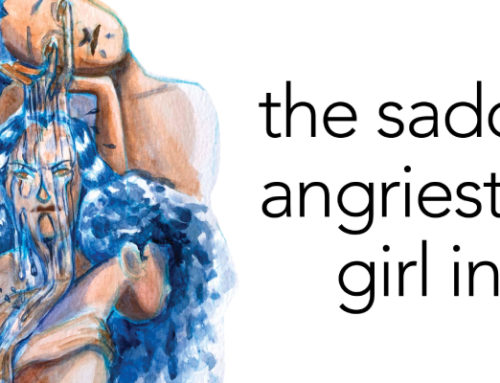Comic Book Bootcamp Day 1: Superhero Comics
What we’re reading…
Today’s selection is G. Willow Wilson and Adrian Alphona’s Ms Marvel (2014) from Marvel Comics.
Since today’s theme is superheroes, I wanted to make sure the main title embodied as much of the superhero narrative as possible while being a fresh, new take on the genre. The first volume, titled No Normal, is the best example of the modern superhero myth. It is also hands-down the most influential superhero book to come out in recent years.
Before you read…
What Makes the Muslim Ms Marvel Awesome
Editor Sana Amanat’s TED Talk about Ms Marvel and Diversity
Let’s take a look…
Kamala Khan is your average fangirl. She dreams about Captain Marvel. She references geeky things throughout her day. She writes her own fanfiction and obsesses over the popularity of her work. She is, in essence, all of us.
That’s the beauty of Wilson’s work. She has introduced a character never featured with such prominence in the Marvel Universe and made her so similar to the average reader. When we pause and consider why Ms Marvel soared to the fame, we can attribute much of it to the frank and honest presentation. Kamala is sixteen, and she acts like every other sixteen-year-old in America. When she gets super powers, she doesn’t act too differently from what any other sixteen-year-old girl would do.
Kamala’s powers come to her by accident. In a small act of rebellion, she leaves her house at night to go to a party. While at the party, Kamala comes to realize that popularity and fitting in with others may not be the best course of action for her. She leaves the party upset and self-conscious only to be surrounded by the Terrigen Mists. She has a vivid vision of Captain Marvel that blends with her religious background. When she awakens, Kamala looks like her idol in her previous costume as Ms Marvel.
This is a major part of the series. Kamala, in all her frustration in being different from the American ideal, wishes to be similar to the other kids at school. Never mind that she has positive friendships, such as Nakia and Bruno, who accept her for who she is. For many people, acceptance starts with the person. If Kamala does not feel comfortable in her own skin, how can she feel truly accepted by those around her? Kamala’s outward appearance, the one her mind chooses, attempts to externalize her desires. Gone is the brown-haired, brown-eyed, dark-skinned, short girl. In her place stands a facsimile of Carol Danvers, Kamala’s role model.
Kamala quickly learns that a change in appearance does not mean an internal change. Growing up, we all learn that our outward appearance can feel hollow if our self-esteem does not grow with it. Kamala gets what she wants visually, but cannot abandon herself. Kamala’s power to transform is a story tool that has a distinct Marvel feeling to it. There is a desire in many Marvel characters to be normal, average. Kamala sees Zoe as the average American see wants to be. Carol is her idol. Nakia’s satisfaction with herself seems just as unattainable as becoming a blonde woman. When Kamala transforms, the distinction between what she wants and who she is is painfully obvious.
Kamala combats this pain when she performs her first rescue. She immediately gets a sense of intrinsic motivation. Kamala finds her calling in life. Her approach is genuine and individualized. She knows she needs a costume; she pulls from her own culture and creates a colorful costume that is practical. She needs a secret identity; she takes on the previous mantle of her hero. She needs a confidant; her best friend Bruno agrees to help her achieve her goals. Kamala’s origin story has the classic aspects of a superhero myth, including the aspect of being an outsider.
Yes, Kamala is Pakistani. Her cultural background serves as an allegory for her superhero status. Much like Peter Parker and the X-Men, Kamala is a natural outsider. Despite her loving family and close friends, she’s different. Yet it is that innovative thinking from an outsider’s perspective that allows her to utilize her powers in save others. Kamala’s powers, grotesque at times, emphasize her outsider status. Most female superhero powers are defensive and do not alter the appearance of the user. Shadowcat, Invisible Woman, Jean Grey, Cecilia Reyes…these powers are subtle. Kamala has strength, and with it comes an alteration in her physical appearance that is unnatural and discomforting. She is not ashamed of it. Not once does she comment on the grossness of it or how ugly it can be. She may be outside the norm for superheorines, but she rises quickly among their ranks with her positive attitude and desire to do good.
Kamala is not normal, but, after the events of this first volume, is there any reason to seek normality? That is what makes this volume of Ms Marvel and excellent example of superhero comics; she steps up to the call and performs her duty to the best of her ability.
Critical reading…
What is your first thought of a superhero? How does it differ from Kamala? How is it the same?
Why are women so eager to accept Kamala?
How does Kamala’s background parallel her superhero powers?
If you know much about Carol Danvers, why would Kamala look up to her? How does Kamala’s story update the Ms Marvel mythology?
Further reading…
Comic Book Legal Defense Fund rationale for educational use









Kamala is my favorite superhero right now because she’s so relatable. She has real life woes at the same time as her superhero ones, and the writers do such a great job of balancing the two. I love this run so much!!
There’s a hardcover edition coming out mid-August! I think I’m selling my trades and individual issues to buy it (yes, I buy this comic in multiple formats, like most Kamala fans!).
I was totally blown away when I read the first trade. The simple fact that yes, this is a superhero story, but much more importantly a woman’s coming of age story absolutely boggled my mind. In a lot of ways I guess superhero stories are all people looking for who they really are, but it’s never been so … real, so … relatable to the average teenager. Maybe Peter Parker is pretty relatable to boys, but as a girl’s coming of age story, it’s brilliant. It’s a story of self expression and self acceptance like I never thought would resonate so well with me. It’s not just that we can become the people we want to be, but that we can become ourselves and WANT TO be THAT person, that makes it so perfect.
I definitely had the Peter Parker feel when I read this volume. I think it’s an important comparison, especially since Peter was introduced as a character who deals with problems in real life along his superpower problems. Kamala is imperfect, but she’s flawed in such a way that connects to nearly every person who reads her to some degree. I’ve never seen reception like that! Wilson certainly filled a void that we didn’t even realize was so large.
[…] Geek Girl Pen Pals has an awesome intro to all things Ms. Marvel. […]